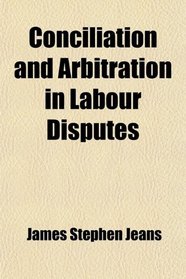Search -
Conciliation and Arbitration in Labour Disputes
Conciliation and Arbitration in Labour Disputes
Author:
Purchase of this book includes free trial access to www.million-books.com where you can read more than a million books for free. This is an OCR edition with typos. Excerpt from book: CHAPTER II. THE PROBLEM OF TO-DAY. It is hardly likely to be disputed, by any one who has given consideration to the subject, that the great problem of the p... more »
Author:
Purchase of this book includes free trial access to www.million-books.com where you can read more than a million books for free. This is an OCR edition with typos. Excerpt from book: CHAPTER II. THE PROBLEM OF TO-DAY. It is hardly likely to be disputed, by any one who has given consideration to the subject, that the great problem of the p... more »
ISBN-13: 9781459064171
ISBN-10: 1459064178
Publication Date: 8/6/2009
Pages: 196
Rating: ?
ISBN-10: 1459064178
Publication Date: 8/6/2009
Pages: 196
Rating: ?
0 stars, based on 0 rating
Publisher: General Books LLC
Book Type: Paperback
Other Versions: Hardcover
Members Wishing: 0
Reviews: Amazon | Write a Review
Book Type: Paperback
Other Versions: Hardcover
Members Wishing: 0
Reviews: Amazon | Write a Review




